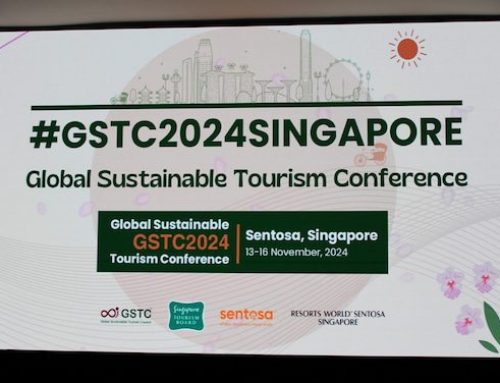In an era where environmental concerns are becoming increasingly central to consumer decisions, the importance of sustainability in business practices cannot be overstated. As companies across the globe strive to align with the GSTC Criteria, the global standards for sustainability in travel and tourism, certification plays a pivotal role in shaping industry norms and consumer expectations. GSTC-Certification is essential not only for businesses aiming to showcase their commitment to sustainability but also for advancing global efforts towards a more sustainable and responsible future.
This guide is intended for GSTC-Accredited Certification Bodies and auditors. It offers further details to clarify the minimum performance requirement hotels must meet to demonstrate they comply with the eight criteria described below. This guidance document aims to facilitate hotels’ preparation for their certification process.
Certification is defined as a voluntary, third-party assessment, through an audit, of a tourism enterprise or destination for conformity to a standard. GSTC does not conduct certification. That is the job of the many Certification Bodies throughout the world; GSTC’s job is to accredit* those that certify.
GSTC Certification is a process-based certification that does not set a specific baseline for hotel performance. This approach allows hotels to tailor their sustainability practices while still meeting the certification requirements, regardless of their sustainability level. However, this flexibility has led to discrepancies not only among GSTC-Certified hotels but also between them and those certified by other programs that concern the GSTC.
To ensure that GSTC-Certified hotels have achieved at least a baseline performance level with continuous improvement, the GSTC is setting up several performance requirements. As a first step, the GSTC requires a total of 19 requirements in 8 criteria of the GSTC Hotel Criteria:
Local purchasing (B3), Decent work (B7), Environmentally preferable purchasing (D1.1), Efficient purchasing (D1.2), Energy conservation (D1.3), Water conservation (D1.4), Greenhouse gas emission (D2.1), and Solid Waste (D2.4).
Some sustainability practices, such as local purchasing, single-use plastic reduction/removal, LED lighting bulbs, or water-saving showerheads/faucets, are well-adopted and serve as a basis for further sustainable and climate-friendly actions. These are also included in the requirements with specific targets. These performance requirements for hotels to get the GSTC-Certified status prevent greenwashing and encourage better actions by hotels.
–
To learn more about becoming certified as a sustainable hotel or accommodation, click here. You can also download the PDF Guide on how to become certified here.




